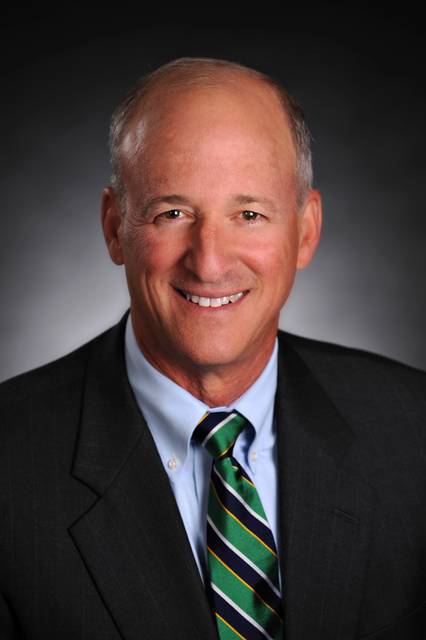King visits SKCTC
Published 3:00 pm Tuesday, November 14, 2017

Robert L. King
Both Middlesboro’s and Pineville’s Southeast Kentucky Community and Technical College (SKCTC) campuses were graced by a visit from Robert L. King, the president of the Kentucky Council on Postsecondary Education, last week as part of his self-proclaimed goal to visit each SKCTC campus.
Throughout his years on the council, King says he has learned that there is absolutely no substitute for physically visiting a campus and having the ability to speak with the students and staff members, as well as witness the quality of the equipment and classrooms first-hand, so that is exactly what he has set out to do.
“The visit was, as I had hoped, very helpful to me in both learning about the college, and also having the opportunity to meet with the students and faculty,” said King. “It was great to hear what they think about their campus and their education in general.”
During his visit, King met with close to 60 students from various majors and toured several programs among both campuses, which he credited as being of the utmost quality.
“I was highly impressed with the quality of the programs. They’re all very sufficient in meeting needs within this region. The campuses are doing what I would call a first-rate job,” said King.
While the programs, along with the campuses’ high graduation rates, received much praise from King, he also noted the greatest challenge faced by the area. The equipment students are being trained on is very much in need of an update in order remain relevant to that which exists among real-life working environments.
While for more general education classrooms are simply classrooms, technologically based classes depend highly on the equipment offered, which is one of King’s main motivators for visiting each campus. He wanted to see first-hand what is offered and whether or not it needs to be improved.
The next step for the council, as well as the campuses themselves, is to find resources for the technology needed, which is most often done through partnerships with businesses that use the equipment on a daily basis.
While King has almost accomplished his goal of visiting all 16 SKCTC facilities, he plans to continue revisiting each campus, as he helps them work toward making higher education in the area the best it can possibly be.
Since he began his position on the council in 2008, the state’s public institutions have seen a steady growth among degrees and credentials, as well as student readiness rates; however, King places all of the credit on the campuses’ leadership and the commitment they have made.
King has been involved with higher education in some form for the majority of his life, and truly takes a passion in the idea of providing as many people as possible with the opportunity to experience a postsecondary education.
The council has also made it a mission, not only themselves, but for the entire state, to encourage more high school students to continue their education after graduation. They also strive to inform adults — many of whom are out in the workforce, yet are unable to earn to their full potential due to their lack of credentials — that it’s never too late to go back and fulfill their dreams.
They have set a goal to arm at least 60 percent of the state’s population with some form of postsecondary education by the year 2030, which is a huge leap from the state’s current 45 percent.
Community colleges, such as SKCTC, play a crucial role in accomplishing that goal, as they provide people with access to affordable higher education that is within almost everyone’s reach. They are also, for the most part, tightly tied to the employment needs in the region served by the college and can even make a great starting point for those hoping to some day obtain a four-year degree.
“Community college is very important because it provides so many people with the credentials they are going to need to be employable. The majority of jobs being created in the foreseeable future are going to require some form of education after high school,” said King. “Not everyone needs a bachelor’s degree, but almost everyone is going to need either a certificate or an associate degree in order to make a decent income.”





